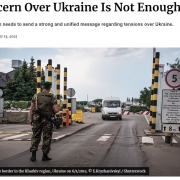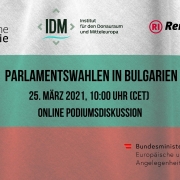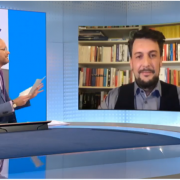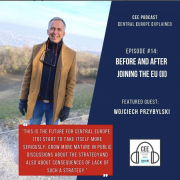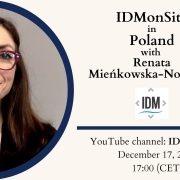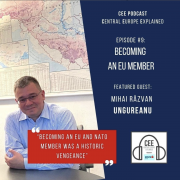IDM Short Insights 11: Side effects of vaccine diplomacy in Slovakia
In March 2021, exactly one year since the assuming of the office after an overwhelming victory in 2020 parliamentary elections, instead of celebrating, Igor Matovič had to deal with the dissolution of his own government. What role can the vaccine diplomacy play in the domestic politics and what can be expected from the new Slovakian government? Daniel Martínek (IDM) describes the recent political storm in Slovakia and analyses the causes of the crisis.
Parlamentswahlen in Bulgarien (März 2021)
Online Podiumsdiskussion veranstaltet vom IDM in Kooperation mit der Politischen Akademie und dem Karl-Renner-Institut
Begrüßungsworte
Gerhard Marchl, Leiter der Abteilung Europäische Politik, Karl-Renner-Institut
Briefing über die aktuelle Lage in Bulgarien Velina Tchakarova, Direktorin des Austria Instituts für Europa- und Sicherheitspolitik (AIES)
Podiumsdiskussion:
Yasen Georgiev, Executive Director des Economic Policy Instituts in Sofia
Louisa Slavkova, Mitbegründerin und Direktorin der Sofia Platform in Sofia
Velina Tchakarova, Direktorin des Austria Instituts für Europa- und Sicherheitspolitik (AIES)
Moderation
Sebastian Schäffer, Geschäftsführer des Instituts für den Donauraum und Mitteleuropa (IDM)
IDM Short Insights 10: The Future of Hungary’s Fidesz in Europe
In March 2021 Viktor Orbán’s party Fidesz left the European People’s Party (EPP). What happened exactly and what can we expect next from the Central Eastern European right-wing party? Daniela Neubacher (IDM) comments on the recent conflicts about the future of Fidesz and explains what possible consequences this decision might have for the European Union.
IDM Short Insights 9 – Governmental crisis in Italy
Federica Mangiameli, Trainee at IDM, talks about the exit of Matteo Renzi, leader of the party Italia Viva, from the Italian government led by Giuseppe Conte. This opens a political crisis in the middle of the Covid-19 pandemic. Was it the right moment to attempt to build a stronger coalition? And, as we have seen in various countries in Central and South East Europe, do these frequent changes of government move away voters from traditional democratic institutions?
IDMonSite/Poland: Renata Mieńkowska-Norkiene
IDMonSite/Poland with Renata Mieńkowska-Norkiene
The ruling of the Polish Constitutional Tribunal on a near-total ban of abortion triggered nationwide protests that the country has not experienced since the fall of communism. After two months, the dynamics of protest have changed, and their demands go beyond the pro-abortion cause. Through the perspective of the current demonstrations, we will discuss the condition of Polish democracy and the civil society, the widening cracks in the ruling coalition and the future of relations with the EU. Renata Mieńkowska-Norkiene – professor of political science, sociologist, mediator, living in Warsaw and Luxembourg; associate professor at the University of Warsaw; her two main scientific fields of interests are: European integration and conflict management; Prof. Mieńkowska-Norkiene lectured at University of Vilnius, Liechtenstein-Institut, EURAC European Academy, London School of Economics and Political Science, Université Libre de Bruxelles and SciencePo in Paris; she worked in the European Commission; Prof. Mieńkowska-Norkiene speaks fluently 5 languages; she cooperates with numerous scientific journals (as a reviewer), NGOs (as a member of Program Councils) and TV programs (as a commenting expert).
IDM Short Insights 8 – Presidential elections in Moldova
Sebastian Schäffer identifies three challenges for the pro-European opposition candidate Maia Sandu after her victory in the presidential elections in Moldova held on 15. November 2020.

